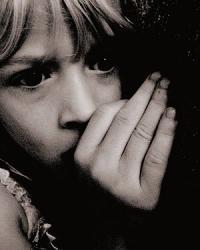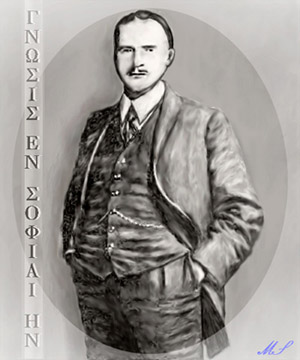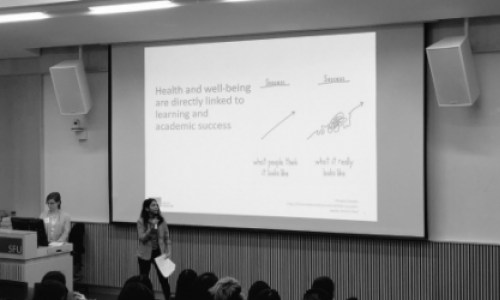
I’ve been reminded in my visits with students recently of the difficulty that can be a part of making big decisions. I’ve also been reminded that when working with people struggling with a choice between two or more alternatives, each with clear benefits and drawbacks, it can be challenging to reign in the impulse to push for one direction or the other. I can feel their stress, the tension, the anxiety, as a palpable presence in the room, as if it were an odour, and my first instinct is to do something to ease their discomfort.
All it would take is a few words: “This is the choice you should make. This is what I think you should do.” I want to take the heavy responsibility of their choice away. I can almost see it, a weight hanging from their neck. Just let me pick it up.
But I don’t. In a professional helping context, I never have, and never will.
There are a few reasons why one would let someone making a tough decision go through a hard time. Perhaps the most apparent involves the responsibility for the outcome of the decision. Despite the very fundamental fact that the responsibility of a choice is always that of the chooser, it can be incredibly difficult not to assign some liability to a person who in some way convinces you to make the choice in the first place.
There is an incredible source of potential authority and self-efficacy within our decisions. If we walk around thinking that other people are making decisions for us all the time, we probably don’t have too much faith in our own ability to make good decisions. That trickles down all the way to the way we feel about ourselves in the most fundamental sense – our self-esteem.

But there is another reason. The existential school of thought acknowledges the inevitability of pain and distress in life, and in many cases, the meaninglessness of it as well. Many other theories in the world of psychology and philosophy embrace the idea that life is basically a big series of painful challenges. Carl Jung is an example of someone whose theories revolved around dichotomies or binaries, like light/shadow, good/evil, introvert/extrovert, and otherwise. The basic idea was that you can’t have one without the other. There is no light without shadow. There is no joy without pain. There is no freedom without responsibility.
In my opinion, the biggest reason not to “help” someone making a big decision by imposing your own view of what’s best for them (even if it’s really, really obvious and you’re 100% sure that you’re right) is that the discomfort that they are going through is actually a healthy, perfectly normative experience.
Let’s face it – if we didn’t experience fear or anxiety, we just wouldn’t get anything done. We certainly wouldn’t go about the business of self-improvement, because we’d be perfectly happy with ourselves as-is.
Fear in the face of big decisions is a sign that we are on the edge of something truly important to us. Do I make the career change? Do I abandon my course of studies for a different one? There is a sense that we are afraid of losing what we have. But underneath that, we are brushing up against, flirting with our usually hidden, innermost, fundamental aspects of self. Our deepest values, convictions, traits, and facets. The crux of who we are. And anyone who’s experienced this kind of deep insight will tell you that it is a scary process. We are incredibly deep creatures, and the vast majority of our lives are lived outward. What’s inside is dark and foreign to us, but it is also our only true source of growth.
So, fear is a good thing. If you’re the kind of person who puts off decision making until the last minute to avoid the anxiety associated with it, then makes an impulse decision as quickly as possible, I would suggest trying to make better friends with your fear. Listen to it. There’s a message there that’s probably going unheeded.
And if you do seek help, it’s okay to expect that someone will take the burden of that responsibility away from you, but that likely won’t happen, and if it does you’ll be back where you started the next time a big decision comes along. It’s far better to have someone help you confront your own decision, and in so doing, to hear the message coming from within – your inner compass. If you can tap into that resource, it will never lead you astray.
“The sole purpose of human existence is to light a candle in the darkness of mere being.”
– Carl G. Jung.
















